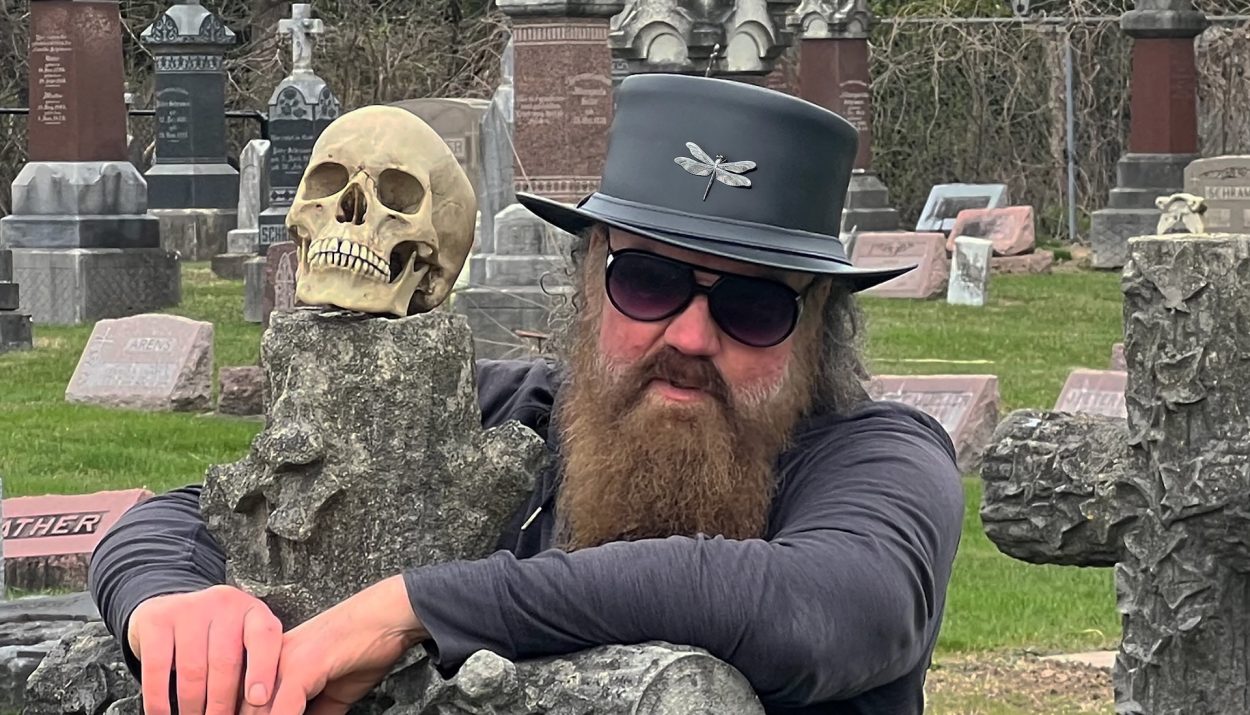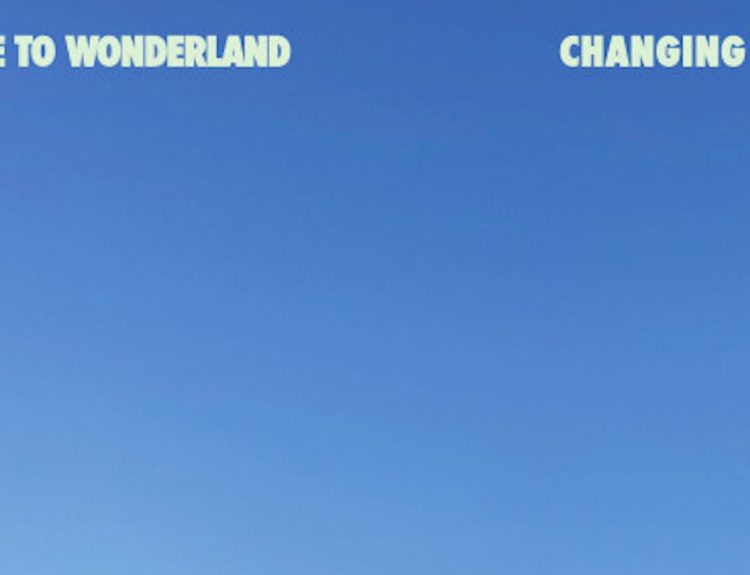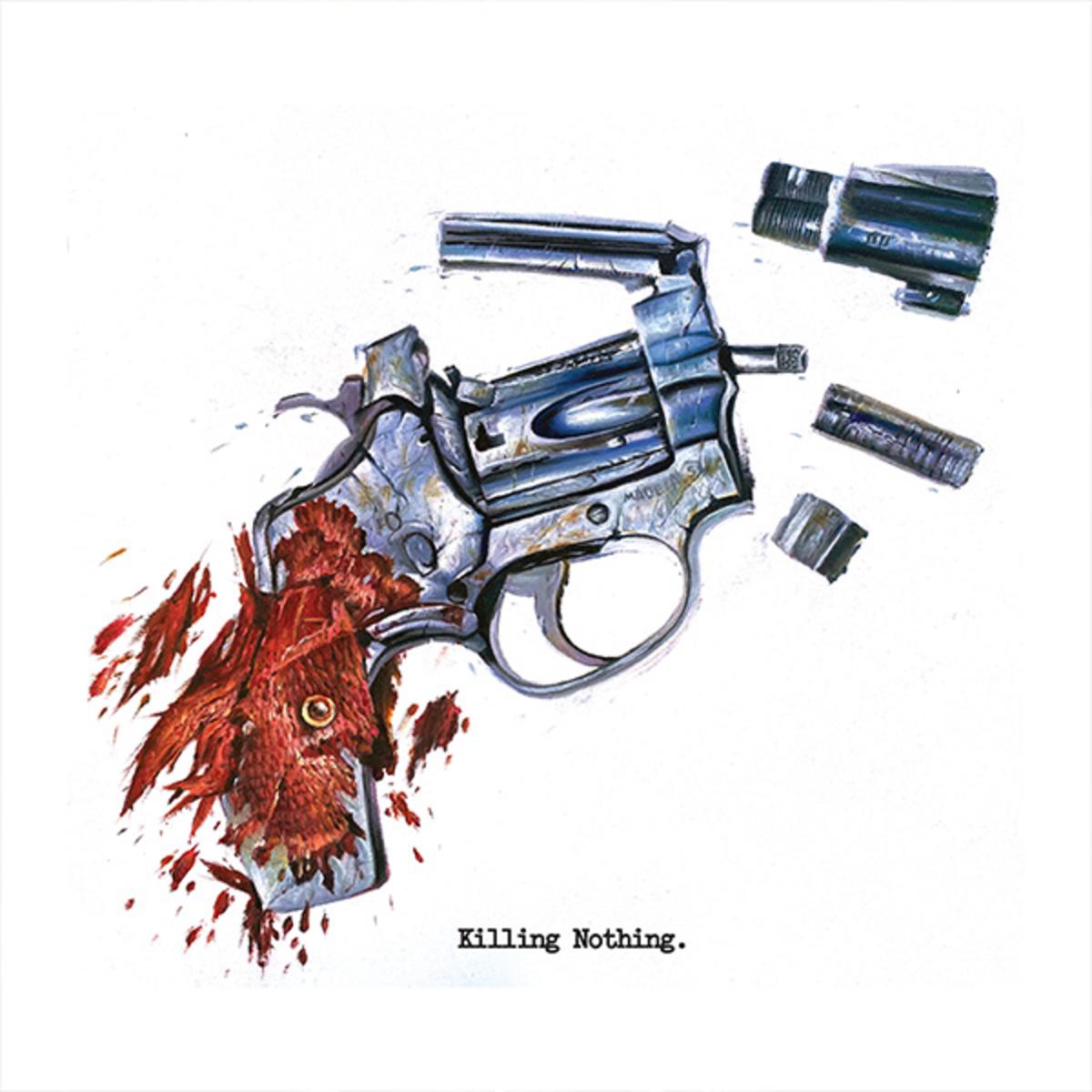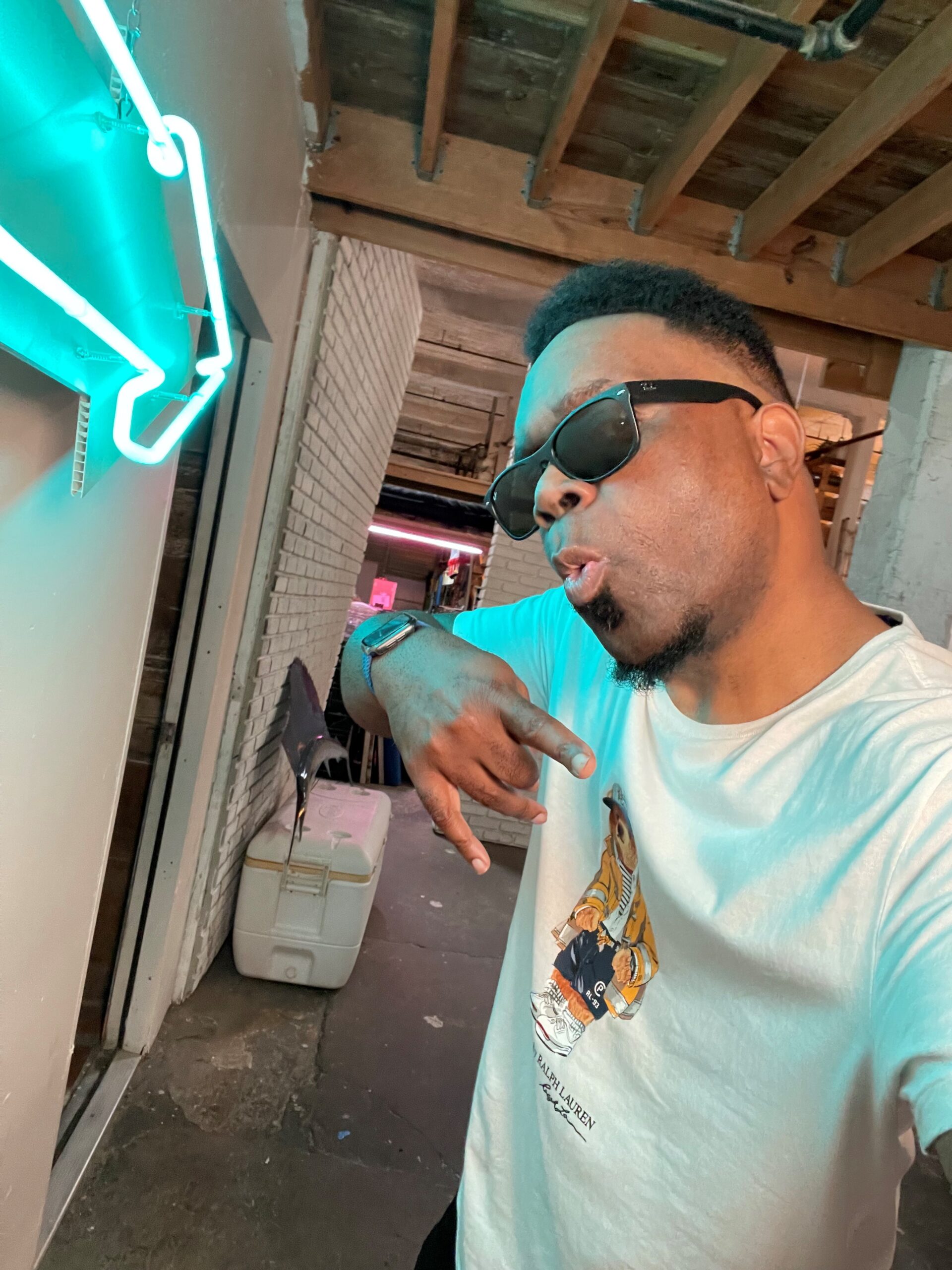We’ve been following Rosetta West across the years and each release feels like uncovering another chapter in a book that refuses to sit neatly on any one shelf. Born out of Illinois, the band has long stood as a defiant testament to independence in rock, blending blues grit with psychedelic haze, folk mysticism, and a sharp underground edge. Their music doesn’t play by rules—it breathes, meanders, and sometimes combusts into something raw and otherworldly. With “God of the Dead,” the band reemerges not with a whisper but with a sprawling thunderclap of vision, a collection that stretches across genres and moods yet remains bound by one force: Joseph Demagore’s unflinching artistic spirit.
What makes Rosetta West so intoxicating is their refusal to conform. They don’t smooth their edges for mainstream consumption. Instead, they lean into the jaggedness, the mystery, and the transcendence of rock in its most primal state. God of the Dead is both sprawling and eclectic, but every track feels purposeful, stitched together by a spiritual and emotional undercurrent that demands to be felt, not just heard. If their last outing, ‘Gravity Sessions,’ was a concise punch to the chest, then ‘God of the Dead’ is a full-bodied journey through storm, silence, and fire.
The album opens with grit and swagger. “Boneyard Blues” is a skeletal blues riff grinds under Demagore’s raspy, commanding vocals, while guest drummer Caden Cratch injects a pounding, funeral-march intensity. The lyrics evoke visions of decay and rebirth, a dance with mortality.
Leaning into punk edges, “Underground” feels urgent and snarling. The bass growls beneath jagged guitars, and the rhythm has a rough-hewn drive. Lyrically, it speaks to hidden truths and subterranean lives, the things society buries but that inevitably rise.
“I Don’t Care” is where Rosetta West flips into pure defiance. Funk inflections slither through the groove, and the vocals are sharp with irony and conviction. The flow is loose, almost sneering, a raw anthem of disconnection from societal expectations.
The next track, “Chain Smoke” is a slow, simmering blues cut that burns with atmosphere. The guitar licks are drenched in smoke and echo, while the lyrics portray weariness, addiction, and release. Demagore’s delivery is weary yet passionate, a storyteller’s lament.
As one of the album’s most fascinating experiments, “Town of Tomorrow” is a blend of folk mysticism and dystopian poetry. The instrumentation is stripped but haunting, with acoustic lines weaving like fragile threads. It feels prophetic, asking what future we’re truly building.
In “Susanna Jones,” we find the heart of Rosetta West’s storytelling. This acoustic ballad brims with tenderness and pain, introducing us to a character wrapped in longing and memory. Demagore’s voice is at its most vulnerable, his delivery hushed yet devastating.
Now, “Tao Teh King” is a meditation in song form, inspired by Eastern philosophy. World folk elements enter here—exotic tonalities, percussive layers, and a hypnotic vocal cadence. It’s one of the album’s most spiritual moments, a pause of reflection amid chaos.
Raw and autobiographical, “My Life” pulls no punches. The instrumentation is stripped to its essentials, guitar and piano carrying the weight, while the vocals spill over with unflinching honesty.
A more soulful offering, “Baby Come Home” is with shades of classic blues balladry. The pleading tone in Demagore’s voice connects instantly with the listener, while the band lets the groove breathe, making each note resonate.
Bright but tinged with nostalgia, “Summertime” layers warm guitar tones with subtle psychedelic swirls. It’s wistful rather than jubilant, painting summer as both fleeting and eternal, a time we chase but can never hold.
Dark and cinematic, with echoing guitar lines and a foreboding rhythm,“Dead of Night” delve into mystery, dreams, and nocturnal visions. Production-wise, it’s one of the album’s most atmospheric achievements.
A poetic and paradoxical ballad. The piano takes the lead, delicate yet dramatic, while the lyrics explore the coexistence of pain and beauty in “Thorns of Beauty.” Demagore’s performance is aching, vulnerable, and elegant.
The most searing feedback-driven instrumental here. Guitars scream like flames, drums pound with primal urgency, and the track becomes a chaotic soundscape—representing destruction but also purification in “Inferno.”
A return to the earlier narrative, but darker, heavier, and more electric. Where the first part was tender, this reprise feels stormy in “Susanna Jones, Pt. 2,” suggesting the unraveling of memory or fate.
Closing the album with a slow-burn blues meditation, guest bassist Louis Constant anchors “Midnight” with gravity. The atmosphere is thick, the guitars moan with restraint, and the lyrics circle back to themes of time, death, and transcendence.
Joseph Demagore’s voice is central to Rosetta West’s identity. His delivery ranges from raw punk bark to smoky blues growl to vulnerable balladry, tying together the album’s wide palette. His guitar work—whether drenched in feedback, sliding through blues licks, or delicately strumming acoustic folk—is equally versatile, acting as both weapon and balm. Orpheus Jones’ bass is foundational, whether grooving with funk or grounding the mysticism of the acoustic tracks. The rotating drummers—Mike Weaver, Nathan Q. Scratch, and guest Caden Cratch—add unique flavors, from steady rock backbones to untamed percussive explosions.
The production of the album is intentionally raw. It doesn’t aim for polish but rather for authenticity, embracing imperfections that add grit and honesty. The instrumentation is wildly diverse, yet it’s sequenced in a way that feels like a journey: moments of fury balanced by quiet introspection, spiritual chanting offset by blistering guitar storms. The use of piano ballads alongside blues rock cuts shows a band unafraid to stretch their sound to its fullest spectrum.
Rosetta West has once again proven why their underground legacy matters. God of the Dead is not a safe or easy listen, but it’s a rewarding one—an odyssey through blues, psychedelia, folk, punk, and spiritual exploration. This is a band that refuses to play by rules, and in doing so, they remind us why rock at its most daring will always matter. For those willing to give it the time, this album offers not just songs but an experience—one that lingers long after the final notes of “Midnight” fade away. I’ve fallen in love with Rosetta West’s craft over the time, but this release feels like the culmination of everything they’ve been building toward: fearless, expansive, deeply human, and unafraid of the unknown. “God of the Dead” is not just an album; it’s a testament to Rosetta West’s place in the wild frontier of underground rock.
Listen to the “God Of The Dead” album on Spotify
Follow Rosetta West here for more information






